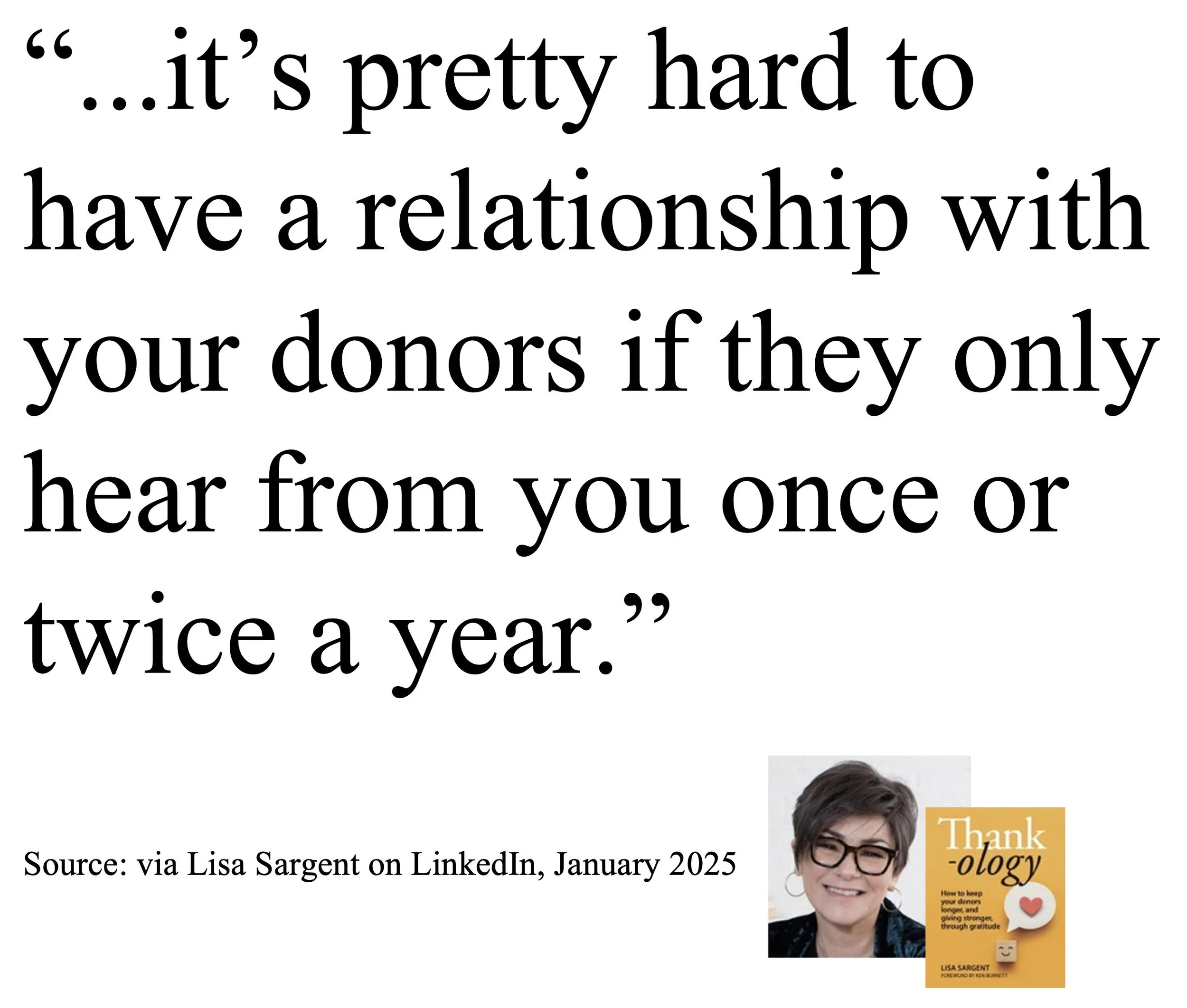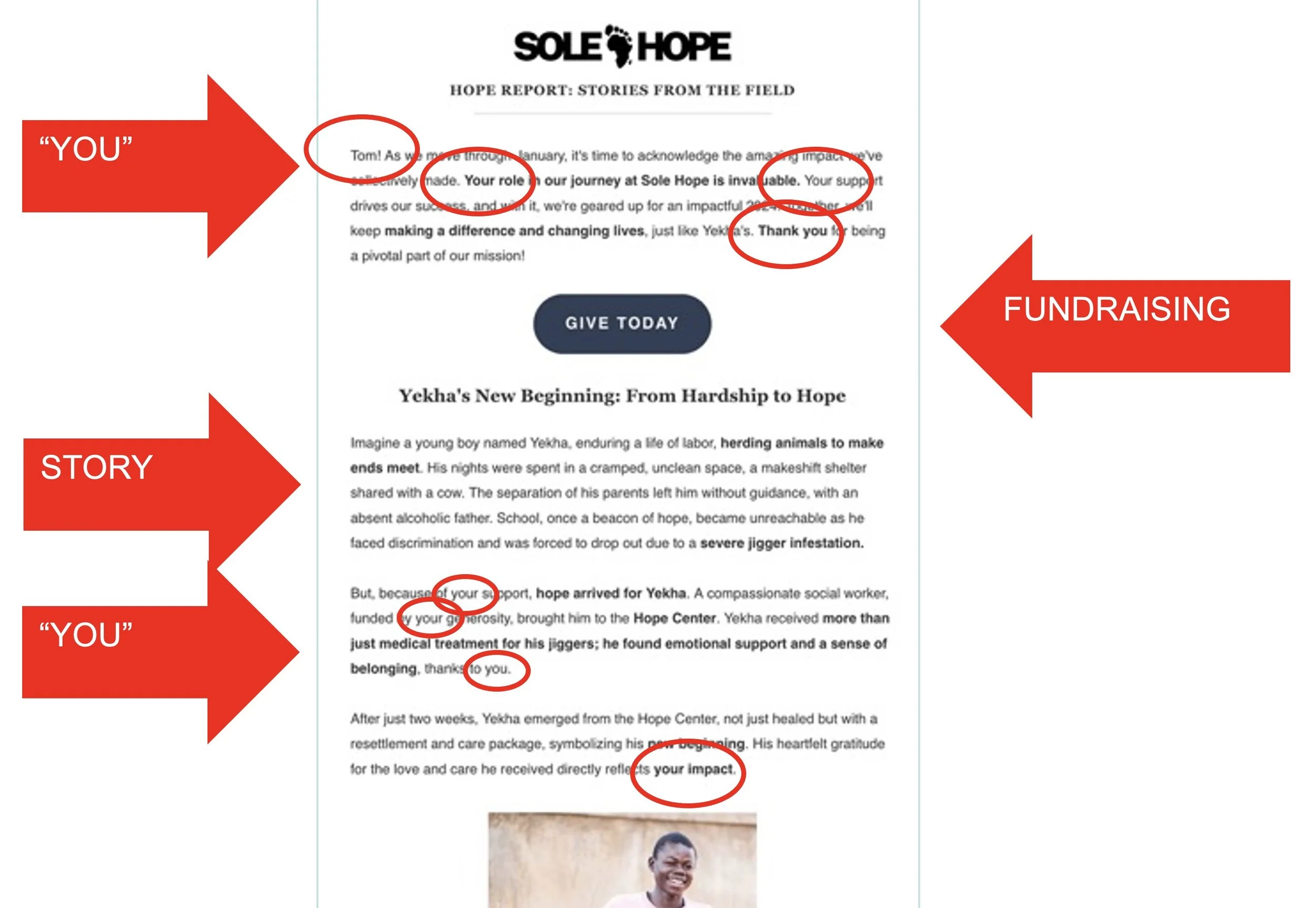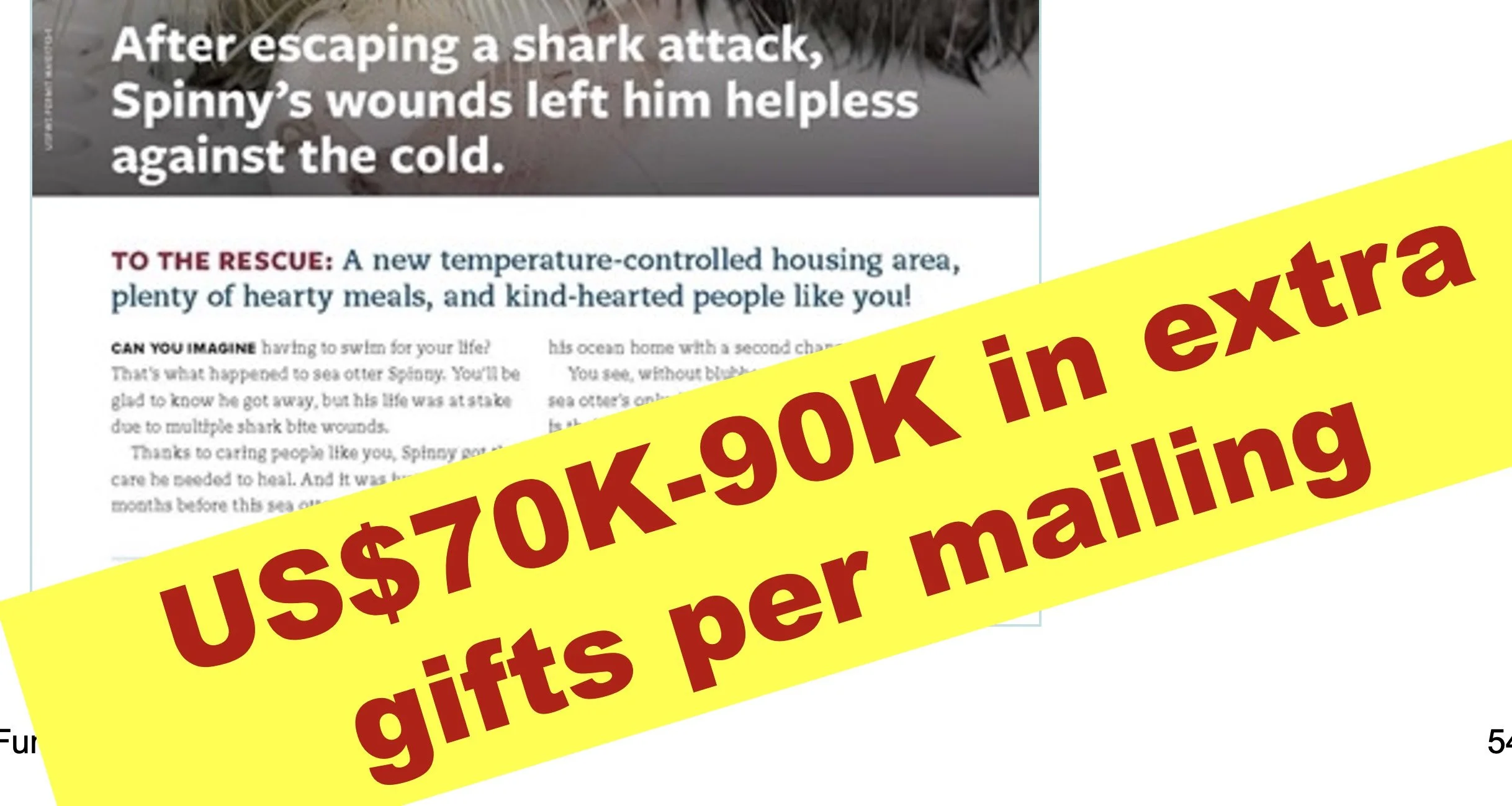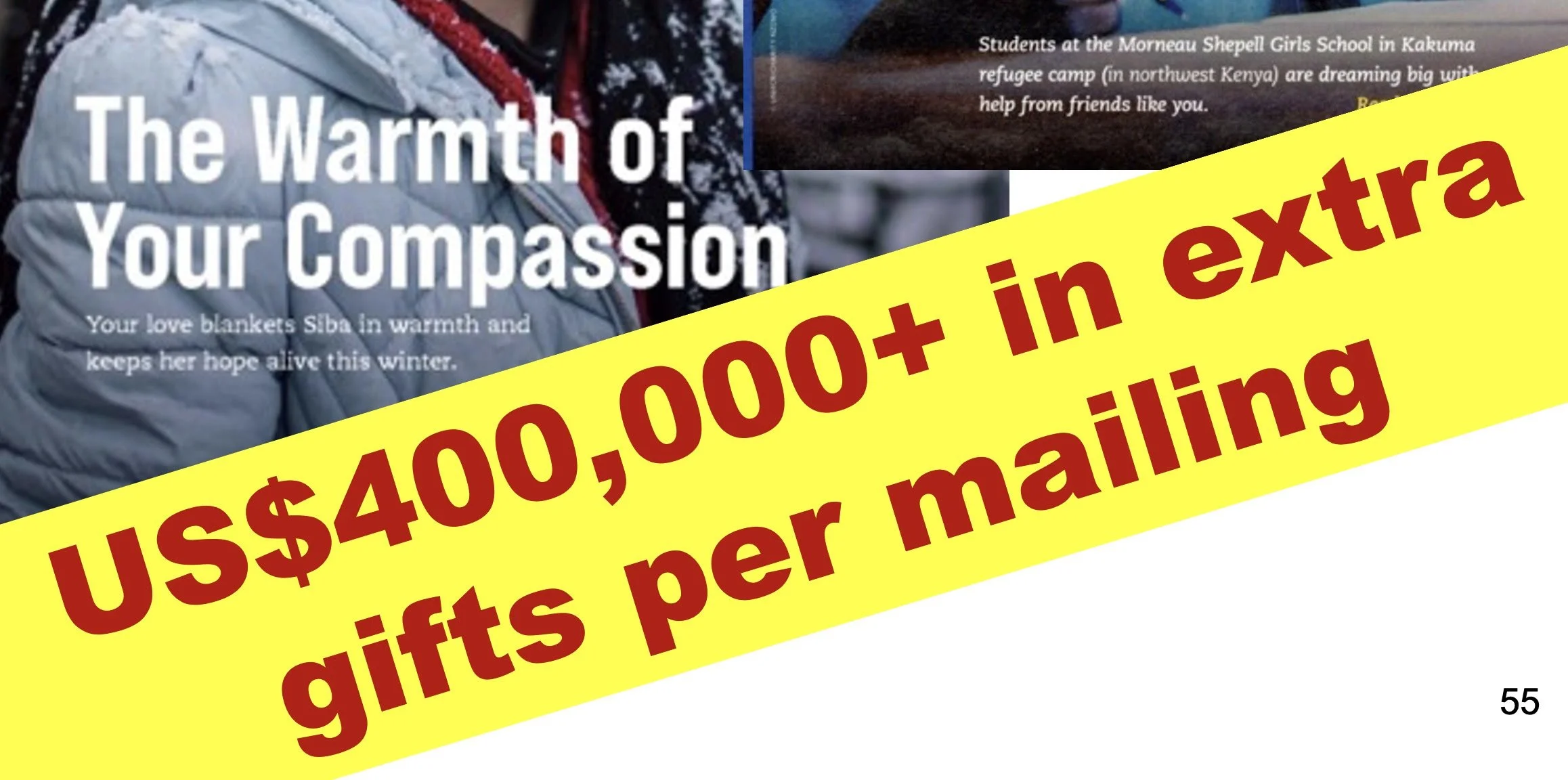R U Reporting Well Enough?
File under: Newsletters/"Show me the money!"
There'$ a right way and a....
R U Reporting Well Enough?
A Manny Festo from Tom A.:
Donor newsletters can make serious money ... when (if) they gratify (i.e., please, win the attention of) their recipients emotionally; connect them with (weave them into the very fabric of) a shared mission (and adventure); earn sufficient trust so that your fundraising offers don't go mostly unheeded; thus making (as proper research would show) retention longer and more likely ... and so, in total, growing your charity's philanthropic muscle (a.k.a., sustainability).
Dateline: 4th quarter 2025, US fundraising market....
This urgent email popped into my day, sent by a top-ranked donor-comms coach:
>>> [ My admirable colleague wrote... ]
Our brilliant beautiful friend [insert here the name of a comms pro we both admire, an annual-fund specialist with a blazing track record] is moving mountains of bureaucracy at [here insert name of her newest employer, an institutional charity like a university or hospital].
She has been there 9 months (9 very long, long months).
She finally got approval to do a donor newsletter and she has a higher up who is ready to kill it before it even sees the light of day. He literally brags about how he's killed donor newsletters at 2 separate organizations.
She [in scrabbling defense of her proposal] is trying to make the case for how a newsletter can reactivate lapsed donors, be a pipeline for planned giving prospects, major gifts etc.
Are you aware of any research on donor newsletters that she could use? She needs data that shows that when she reports back and does stewardship she boosts retention and increased planned giving prospects.
Much love,
>>> [ My reply to R. confessed... ]
Short answer: Any research? NO. At least no research I'm aware of re: donor newsletters and their specific impact on fundraising retention and planned giving. [Dammit. There's never any boss-convincing research around when you desperately need it.]
There is an EMPIRICAL answer, though. A qualified front-line fundraising practitioner would say:
Absolutely YES ... of course! ... why wouldn't an emotionally-intelligent newsletter retain donors and spur added "planned gifts"? ... makes perfect psychological sense (as anyone can learn) ... plus the charity industry with its top agencies (at least those from the English-speaking charity world that I am most familiar with) have decades of positive results and above-average ROI for their newsletter attempts.
SO anyhoo I sent her what I had...
It wasn't much: a PDF from our 2025 half-day webby, the one devoted to newsletter best basics. But at least the deck had hardcore good advice and recent-ish actual donor newsletters with verified results. It wasn't academic research. But it was empirically sound. For your review some samples from the deck:
>>> [ Also empirically relevant to the newsletter debate ]
... is this verbatim testimony from hyper-successful fundraising veteran, Andrew Olsen, as shared on LinkedIn (I follow him and read every word):
[Before the newsletter's makeover, without special training] We were LOSING $40,000 every time we mailed our newsletter
[After a little training, with a daring donor-hugging makeover done in-house] Fought for 2 YEARS to revamp the newsletter & improved [our donated] revenue by 1,000%!
>>> [ And this 2025 advice quoting digi-guru Jeremy Reis ]
... 9 reasons your nonprofit newsletter doesn’t raise money
"Effective donor newsletters raise net revenue," says Jeff Brooks, one of the world's most experienced copywriters. ¶ "That’s not their primary purpose (which is improving donor retention by showing them their giving matters). But when done right, they raise money. For some organizations (not all), they are just as effective as appeals at unlocking donor generosity."
Dear Reader: This is an excerpt from Tom Ahern’s e-newsletter. Did you miss crucial back issues of this how-to e-news? Immediately available! Just GO here. (And scroll down just a bit to sign up for Tom’s revenue-boosting tips and insights. In your inbox regularly. It’s free.)





